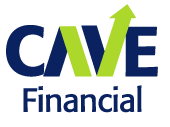KiwiSaver - "Missing Millions"?
Thu May 4th 2017
Kiwis ignore millions offered by Government each year. Find out how to maximize your KiwiSaver contributions to ensure a more comfortable retirement.
Are you missing out on your share of $300 million?
Last year, more than half of the New Zealanders signed up to KiwiSaver missed out on earning any of the contribution money matched by the government – effectively saying 'no' to their share of more than $300 million.
According to Inland Revenue, nearly 600 000 Kiwi adults didn't earn their full KiwiSaver government subsidy in the last year (to June 30 2016) and almost as many adults didn't receive any of the subsidy at all. This means fewer than fifty percent of New Zealanders are getting the full benefits available to them through saving for their retirement with KiwiSaver. Since 2012, more than $800 million in member tax credits has been skipped!
In case you're not sure how the KiwiSaver scheme works: for every dollar you contribute, the government matches it with 50c, up to a maximum of $521.43 a year. Over forty years, that extra $521 from the government adds up to more than $20,000 – it's essentially 'free' money for your retirement fund. All you have to do to earn it, is make sure you're contributing enough to qualify!
To get your full government contribution, you need to contribute $1 043 to KiwiSaver every year, which works out to be less than $3 per day. But remember, if that's not currently possible for you, every dollar you contribute will still earn you an extra 50c from the government. And in this case, something is definitely better than nothing!
What you need to know to earn your contributions:
Earn the full contribution by saving the equivalent of:
- Half a large latte a day
- 1 fish and chip dinner a week
- A movie ticket and an ice cream a week
- A tuck-shop pie a day
- 2 sausage sizzle sausages a day
- A turn on a spacie machine a day
- A nice bottle of wine a week
Need extra help making sure you're making the right contributions and in the right fund? Get in touch with the experts at Cave Financial. Call them on 09 302 7310 or email cavefinancial@qbg.co.nz

Need our help?
We're here to answer your questions.
service@cavefinancial.co.nz
09 302 7310
1D Roberta Avenue
Glendowie
Auckland 1071
New Zealand


